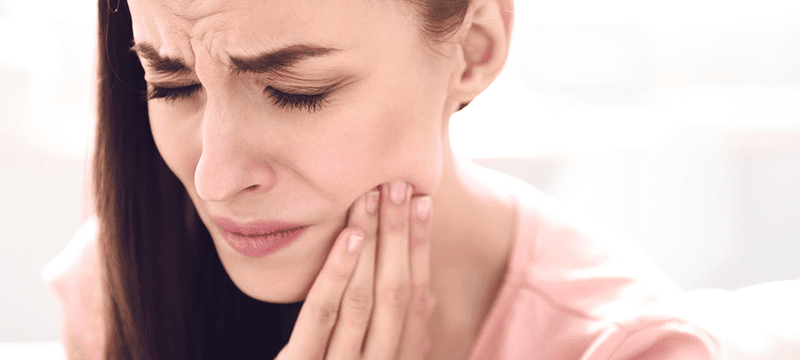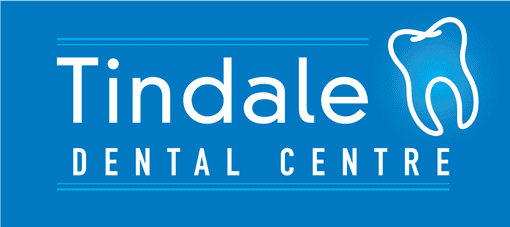
Whether you’ve got a cracked tooth, fractured tooth, broken tooth, or split tooth, it may be able to be saved!
It’s important to look after your dental health and see a professional as soon as possible. Just remember, the faster you act, the better the outcome will be!
Most dental trauma is a result of an accident or sports-related injury. Chipped teeth are the dental injury we see most often; dislodged or knocked-out teeth are less likely, but can have more severe repercussions if not handled correctly at the time of injury.
If you’ve suffered a dental injury and aren’t sure what the next best step is, this list includes a few things you can do to minimise the damage and pain.
Book an Emergency Appointment with your Dentist
Even if you don’t think your dental injury is very bad, you should try give our team at Tindale Dental Centre a call as soon as possible. Neighbouring teeth may have also suffered a trauma that isn’t immediately obvious. By catching it before it develops into a more serious problem, you might save yourself a lot of pain, treatment, time, and money!
Our experienced dentists may be able to save an injured tooth so it’s important to book in for an appointment sooner to give them the best chance.
Look after a Broken Tooth
Unfortunately, there isn’t much you can do for a broken tooth without help from your dentist.
These steps will help look after a broken tooth while you wait for an appointment:
- Rinse your mouth with warm water
- If any areas are bleeding, apply pressure with a piece of gauze until the bleeding has subsided.
- To help with pain relief and swelling, apply a cold pack to your lips or cheek. Don’t put anything cold directly on your tooth, because it will probably hurt!
- Sometimes cracked teeth are difficult to see, and you might not realise that you’ve had some damage. Look out for symptoms like pain in your teeth when you bite in a specific way. The pain will be sharper and different to the dull ache of a cavity or abscess.
Look After Knocked Out Teeth
If you or someone you know has had their tooth knocked out completely, the team at Tindale Dental Centre might still be able to have it reattached. You’ll need come in within the next hour to a day after your injury. To give yourself the best chance of keeping your natural tooth after it’s fully removed, follow these steps:
- Be very gentle with the knocked out tooth as it can be damaged easily, especially the delicate root surface. In fact, avoid touching the root surface at all, if possible.
- Gently rinse the tooth with water if it needs cleaning. Don’t scrub or use chemicals when cleaning your lost tooth.
- Reposition the tooth in its socket if you can. If not, make sure to keep the tooth moist in your cheek or a glass of milk.
At Your Dental Appointment
The treatment that you receive will depend on what type of broken tooth you have. Each different dental injury will require a good examination by our experienced dentist so that they can recommend the best course of action to repair your existing teeth.
Most chipped or fractured tooth crowns can be repaired either by reattaching the broken piece or by placing a tooth-coloured filling. The bigger the broken off part, the more likely it is that you’ll need an artificial crown or cap to restore the tooth.
If you’re finding that breathing through your mouth or eating or drinking cold food is painful, than please also let your dentist know.
Other injuries that could occur include fractured cusps, cracked teeth or split teeth. Cracks that get all the way to the root will need root canal treatment or even removal, so it’s important to let a dentist take a look as soon as possible.
Children With Broken Teeth
When your child’s baby (or primary) teeth are injured, they can be aesthetically restored, but in general, we don’t recommended repairing dislodged or knocked out baby teeth. Further damage can be caused to the permanent tooth that is still developing underneath.
Children’s developing adult teeth need careful attention when they suffer injury, and you should schedule regular follow ups with your dentist to make sure the root is growing correctly so your child can keep his or her natural tooth.
The nature of the dental injury, the length of time from injury to treatment, and how your tooth was cared for after the accident are all factors that impact the success of your tooth repair. The best thing to do is give our dentists at Tindale Dental Centre a call as soon as the accident happens.
Please call Tindale Dental Centre on (02) 4722 6115 as soon as possible, giving you the best chance of holding on to your natural teeth.
